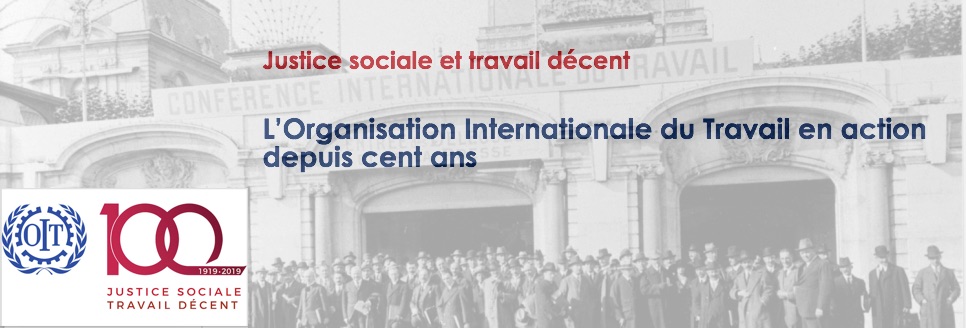Cette communication commencera par retracer la philosophie initiale de l'OIT fondée sur les acteurs nationaux et le contexte historique et économique dans lequel celle-ci s'est développée. Elle étudiera ensuite la croissance des chaînes d'approvisionnement mondiales, leurs effets sur les conditions et les normes de travail, et les tentatives de l'OIT pour répondre à ces défis. En 2016, la Conférence internationale du Travail et sa discussion sur « le travail décent dans la chaîne d'approvisionnement mondiale » a abouti à des conclusions et que nous considérons comme le signal d'une re-conceptualisation de la pertinence de l'OIT et de son rôle normatif alors qu'elle est à la fin de son premier siècle d'existence. L'OIT possède déjà le « plan structurel » pour une standardisation des chaînes d'approvisionnement mondiales ainsi que les outils constitutionnels nécessaires. Cependant, pour le moment, l'OIT est paralysée par des fractures et des tensions politiques affectant ses délégués à la Conférence tripartite et son Bureau. La dernière partie de cette présentation suggèrera des trajectoires susceptibles de réguler ces tensions afin de faire avancer la discussion.
Cette communication s'appuie sur l'analyse thématique du contenu des archives officielles des discussions ayant eu lieu au cours des Conférences de l'Organisation internationale du Travail depuis 1919, sur les recherches des auteurs dans le domaine des chaînes d'approvisionnement des secteurs agricoles, du textile et de l'habillement. Elle est aussi influencée par la longue collaboration des auteurs avec le Bureau international du Travail et le Groupe des Travailleurs.
Governing supply chains and the role of the International Labour Organization
The growth of global supply chains, which now account for 80 per cent of world trade (UNCTAD, 2013), presents the ILO with a challenge that goes to the heart of the Organization's founding philosophy and structure, one built on the prominence of nation states and national actors. Whilst the ILO was set up ‘to equalize conditions of competition among the nations so that trade might be liberated without danger to standards of living' (Polanyi, 1944: 27-8), in the present days of the ‘global transformation' (Standing, 2008), transnational corporations ‘have gone global and function in near real time, leaving behind the slower moving, state-mediated inter-national world of arm's-length economic transactions and traditional international legal mechanisms' (Ruggie, 2004: 503, original emphasis). As part of the ‘state-mediated inter-national world', the ILO has also been ‘left behind' and its conception of decent work and the instruments for attaining it need to be reconsidered. Common principles and practices to be pursued in individual member States are still necessary but no longer sufficient. We find that global supply chains are increasingly shaping the dynamics of employment relations and often contributes to decent work deficits, and hence national and international actors are in need of greater ILO guidance and supervision.
This paper begins by tracing the ILO's philosophy based on national state actors and the historic and economic context in which this philosophy was developed. The paper then examines the growth of global supply chains, their impacts on working conditions and labour standards, and attempts by the ILO to address these challenges. We argue that the conclusions and approved follow-up of the International Labour Conference ‘Decent Work in Global Supply Chain' discussion in 2016 signal a re-conceptualisation of the ILO's relevancy and its normative role into its second century. The ILO already has the ‘blueprint' for a standard on global supply chains and the necessary constitutional tools in place. However, at present the ILO is embroiled in, and hamstrung by, fractures and political tensions both within the tripartite constituency and the Office. The final section of this paper suggests ways in which some of these tensions might be addressed so that the discussion can move forward.
This paper draws on thematic content analysis of the official records of discussion at every International Labour Conference since 1919 as well as the authors' research on agricultural and apparel supply chains and is informed by their long-standing collaborations with the International Labour Office as well as the Workers' Group.

 PDF version
PDF version
